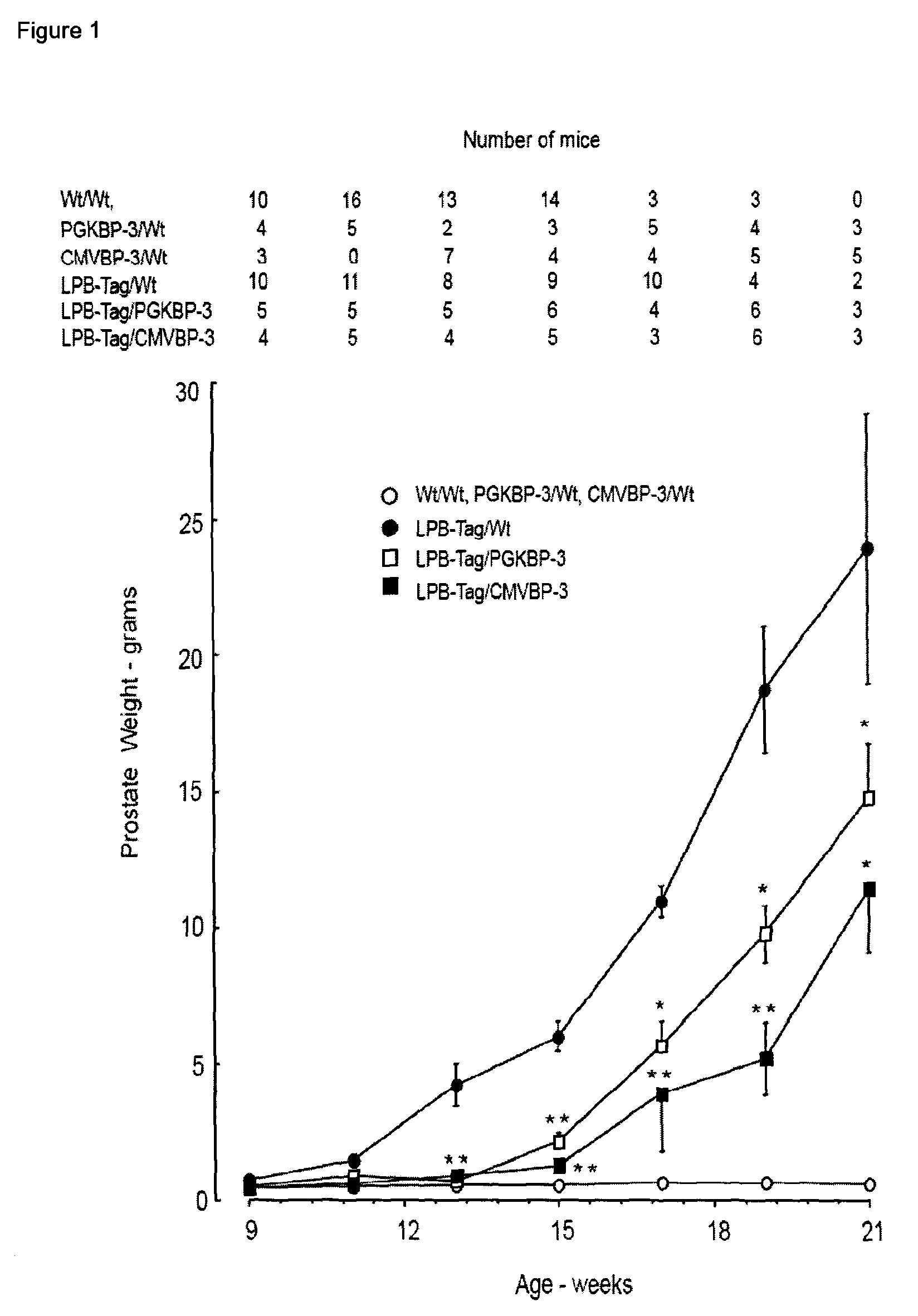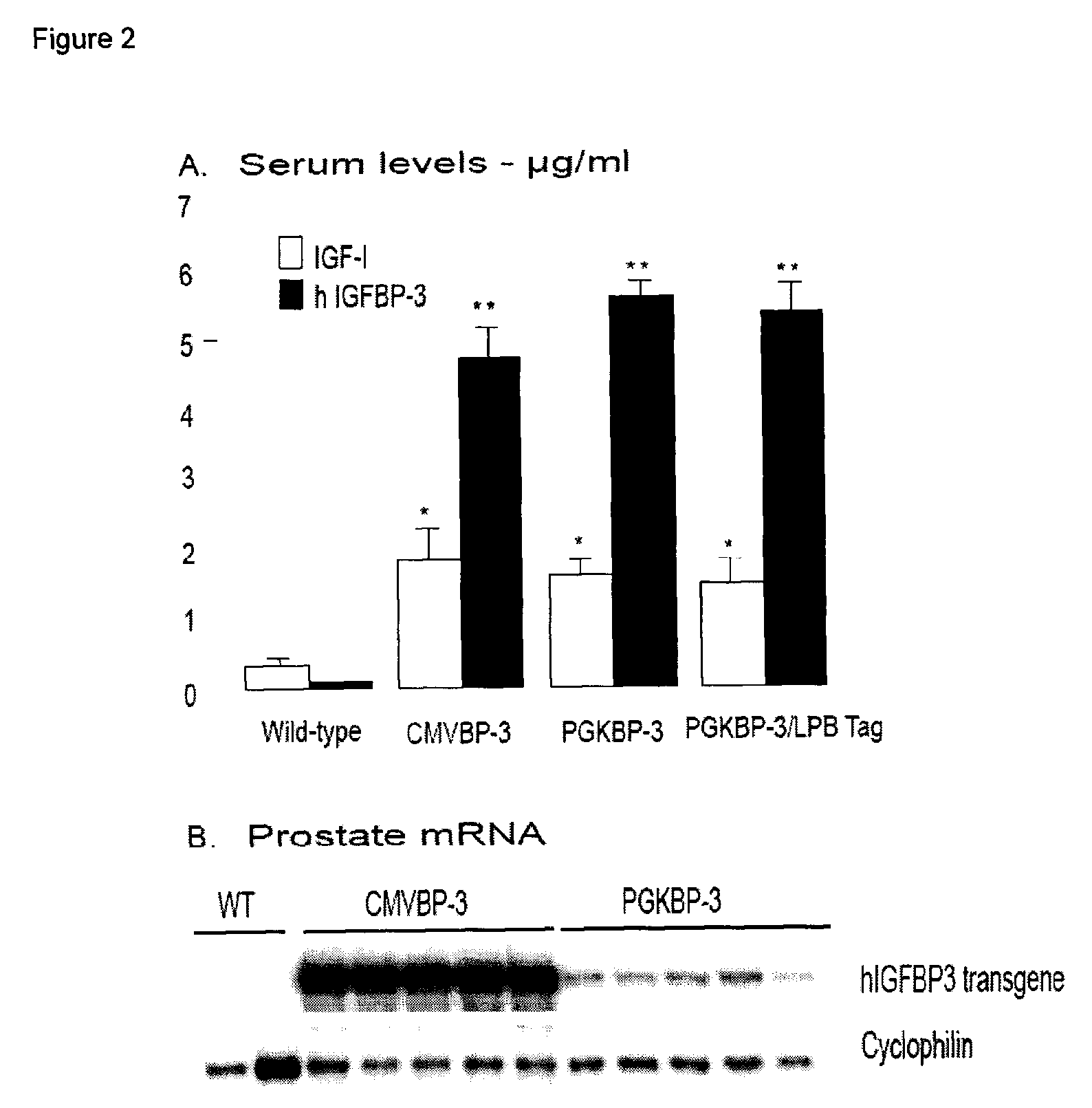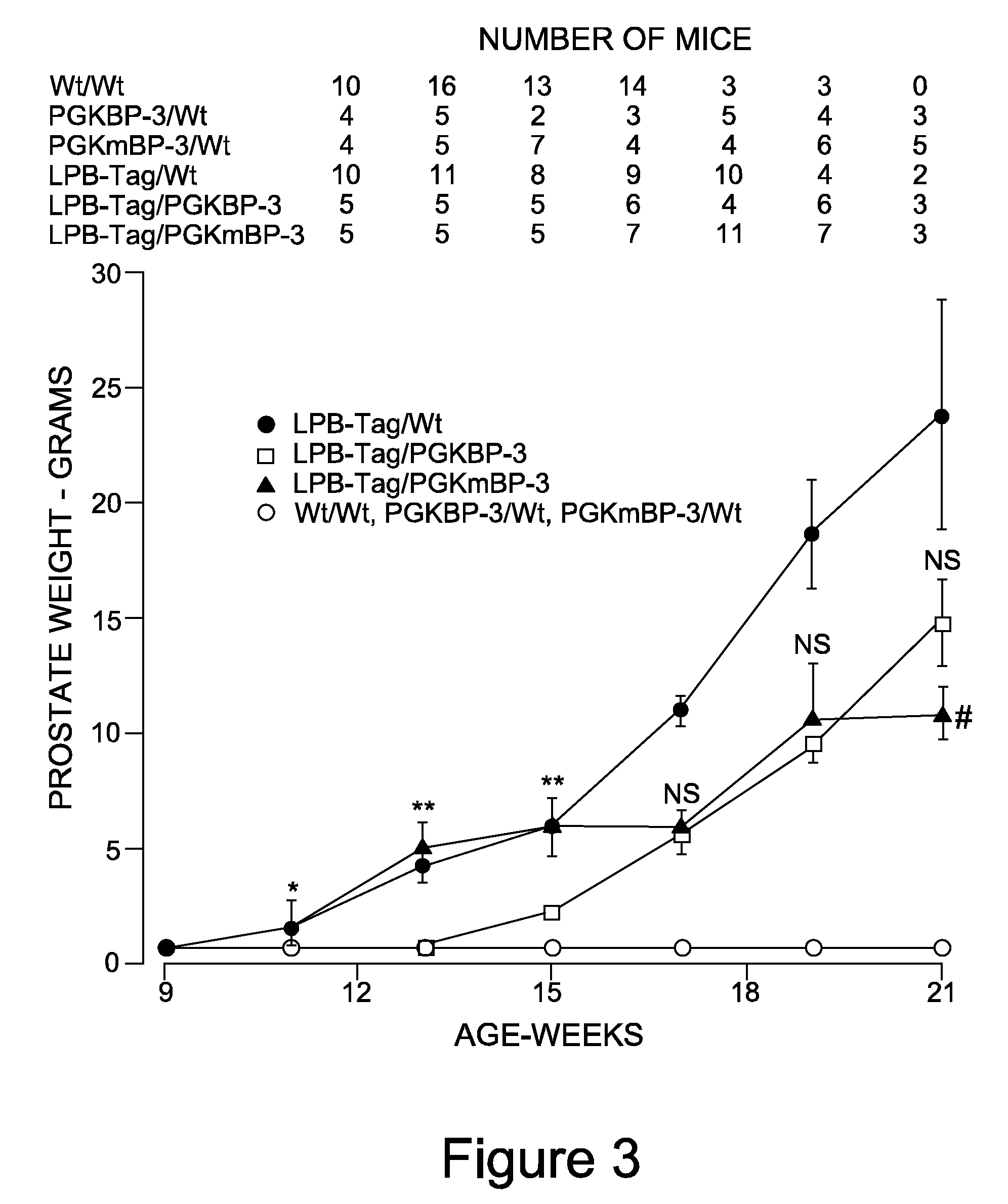Methods Of Attenuating Prostate Tumor Growth By Insulin-Like Growth Factor Binding Protein-3 (IGFBP-3)
a prostate tumor and insulin-like growth factor technology, which is applied in the direction of peptides, drug compositions, peptides, etc., can solve the causal relationship lacking in the causal relationship between the igf system and prostate cancer progression in patients, and achieve the effects of reducing prostate tumor size, promoting apoptosis, and inhibiting cell growth
- Summary
- Abstract
- Description
- Claims
- Application Information
AI Technical Summary
Benefits of technology
Problems solved by technology
Method used
Image
Examples
Embodiment Construction
Materials and Methods
Transgenic Mice
[0019]The generation and characterization of PGKBP-3, CMVBP-3 and PGKmBP-3 transgenic mice have been previously reported [16, 17]. The I56G / L80G / L81G-mutant IGFBP-3 plasmid was generated by site-directed mutagenesis and sub-cloned downstream of the phosphoglycerate promoter in the same plasmid used for the generation of PGKBP-3 mice [17].
[0020]The 12T-5 strain of LBP-Tag transgenic mice that express the SV-40 large T antigen under the prostate specific probasin promoter was used for these studies [18]. The 12T-5 strain of LBP-Tag mice develop palpable prostate tumors starting at approximately 2 months of age. All transgenic mice were generated in the same CD-1 genetic background. Homozygous male PGKBP-3, CMVBP-3 or PGKmBP-3 mice and normal wild-type male CD-1 mice were bred with heterozygous LBP-Tag female mice. Male F1 offspring were genotyped and approximately 25% of all the offspring were double transgenic male animals. These were killed at var...
PUM
| Property | Measurement | Unit |
|---|---|---|
| pH | aaaaa | aaaaa |
| pH | aaaaa | aaaaa |
| weight | aaaaa | aaaaa |
Abstract
Description
Claims
Application Information
 Login to View More
Login to View More - R&D
- Intellectual Property
- Life Sciences
- Materials
- Tech Scout
- Unparalleled Data Quality
- Higher Quality Content
- 60% Fewer Hallucinations
Browse by: Latest US Patents, China's latest patents, Technical Efficacy Thesaurus, Application Domain, Technology Topic, Popular Technical Reports.
© 2025 PatSnap. All rights reserved.Legal|Privacy policy|Modern Slavery Act Transparency Statement|Sitemap|About US| Contact US: help@patsnap.com



